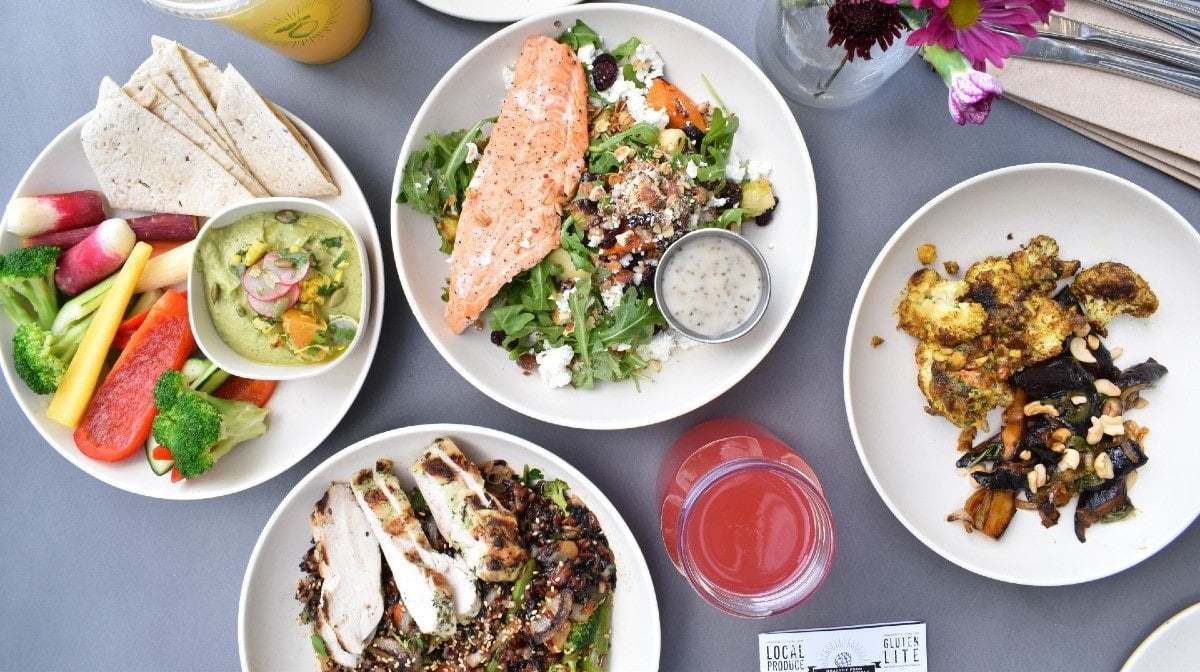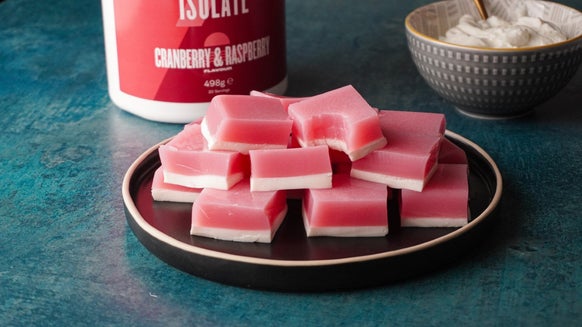Feel Good Food | 11 Foods That Can Make You Happier

Whether you’re feeling happy or sad, our emotions can be tied to our food intake. While there is some evidence to support that “comfort food” can cause temporary happiness, choosing healthier foods can make more lasting impacts on your emotional health.1
There are two major categories of foods on this list - those that are healthy fats and those that are high in fibre. Many of the foods hit both categories. Read on to learn how to plan your meals with foods that will make you feel good physically and mentally.

Foods with healthy fats
Mediterranean style diet patterns have been shown to reduce inflammation and healthy brain functioning2. This diet style is high in fruit and vegetable intake, limited in meats, focuses on whole grains and healthy fats. Polyunsaturated fats (which contain Omega-3 and Omega-6 fatty acids) are known to help boost your mood and reduce any feelings of sadness.3 The following foods are high in Omega-3s:
1. Salmon
Whether baked, poached, or grilled, salmon is easy to prepare and packed with Omega-3s. Not only does it contain these heart healthy fats, but salmon is also a great source of protein to boost your daily intake.
2. Chia seeds
Chia seeds have many benefits, but their high levels of Omega-3s is one of the top reasons to include them in your diet. They also are high in protein and fibre, and can be easily incorporated into shakes and smoothies, oatmeal, or other meals throughout the day.
3. Walnuts
While all nuts are high in healthy fats, walnuts in particular are packed with Omega-3s. They also contain polyphenols, powerful antioxidants that can fight inflammation. You can snack on walnuts, add them to salads, smoothies, oatmeal, or finely chopped on top of a chicken breast or salmon fillet.
4. Avocado
Packed with healthy fat and fibre, avocado is a mood boosting food with many other benefits. Versatile enough to incorporate into any meal or snack, avocados are fruits that aren’t packed with sugar.
Foods that are high in fibre
Fibre is in all plant-based foods, because it is a carbohydrate found in plant cells – we can’t digest fibre, so it does not provide any calories – but it does provide a lot of health benefits. Fiber can help lower cholesterol and blood pressure.
5. Beans
Beans offer so many health benefits – a low fat, plant-based protein that is also high in fibre. Packed with B vitamins, plants also support hormone level regulation and boost our immune system. Beans are also a good source of iron, which can be difficult to find in many non-animal-based protein sources.
6. Brown rice
While white rice has the bran and germ removed from the rice grain, brown rice keeps those two nutritious components intact – it takes a little longer to cook but contains more nutrition than white rice. As a whole grain, brown rice contributes significantly more fibre than white rice.
7. Berries
The dark, deep colours of berries are indicative of the range of antioxidants they contain. Blueberries in particular have powerful plant compounds that can protect memory and improve mood. In addition to supporting digestion, berries taste sweet but won’t trigger the same blood sugar response as refined sugars.
8. Broccoli
Broccoli is one of the members of the cabbage family, all of which are packed with antioxidants and isothiocyanates. Broccoli in particular is great for gut and emotional health due to its high fibre and water content, which benefits healthy digestion.
9. Artichokes
Artichokes are tricky to prepare, but packed with fibre and other plant-based compounds that can boost your mood and brain health. Artichoke hearts are tasty prepared on the grill or roasted, but you can also buy them canned – look for the ones canned in water, not in oil.
10. Carrots
Carrots contain lots of antioxidants and nutrients thanks to their deep orange colour; although you can also find yellow and purple carrots. They not only promote healthy digestion, but also help with skin and eye health.
11. Beetroot
Beetroot is known for many health benefits in addition to their great fibre content. They can also promote heart health and improved circulation, which protects oxygen flow to your brain. Beetroot have even been shown to improve cognitive function, which can boost mood.7
What to Avoid
When you’re not feeling your best, you might crave comfort foods, like sweets, fried foods, or processed foods. These are often high in salt, saturated fat, and sugar, which can lead to illness overtime.
Take Home Message
Although we may take comfort in dreaming of our favourite unhealthy foods, they often feel us leaving tired and unsatisfied. Instead, boost your mood by including foods that are high in fibre, healthy fats, vitamins and minerals to support your physical and emotional wellbeing.
READ THESE NEXT:
| calories | 0 |
| totalFat | 0 |
| totalCarbohydrates | 0 |
| protein | 0 |







